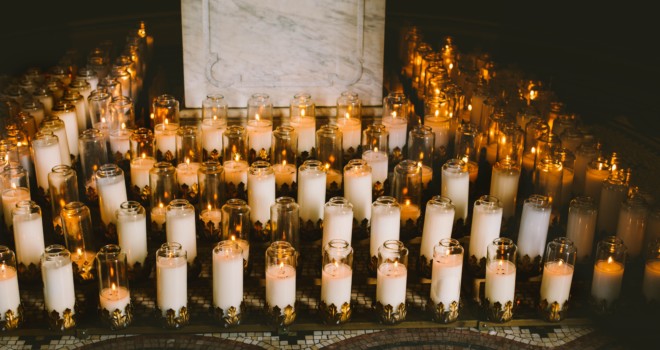A schism in American Catholicism? I think not. As a matter of fact, I have no hesitation saying there is not now and will not be a formal break between any significant body of American Catholics and Pope Francis — and this despite a disturbing amount of media chatter on the subject lately.
There are at least two large reasons why a schism won’t happen.
The first reason is that no ecclesiastical personage of stature in American Catholicism has arisen who gives any indication of wanting to lead a schism. And without a leader, a handful of would-be schismatics — even supposing such to exist — has no place to go and no way of getting there.
The second and far weightier reason is that serious American Catholics understand very well that the Church’s unity is willed by God. Understanding that, they further understand that fundamental to this divinely willed unity is the communion of local churches — their leaders and their members — with the Bishop of Rome. And so, finally, they understand that any group or individual proposing to disrupt this communion, even in the name of some supposedly higher principle, could not possibly be acting according to the will of God.
Cardinal–as this is written, soon to be Saint — John Henry Newman summed it up neatly in his landmark Essay on the Development of Christian Doctrine:
“As the Church grew into form, so did the power of the Pope develop; and wherever the Pope has been renounced, decay and division have been the consequence. We know of no way of preserving the Sacramentum Unitatis [Sacrament of Unity–here, the Church] but a center of unity….We see before our eyes the centralizing process by which the See of St. Peter became the sovereign head of Christendom.”
But supposing American Catholics can be counted on not to go marching off into schism one of these days, where does this talk of schism come from?
Without claiming it’s the total answer to that question, I think it’s reasonably clear that certain people in Rome who do not know much about the United States or American Catholicism yet mistakenly imagine otherwise must shoulder a large part of the blame. Most likely, they have shared their misperceptions with Pope Francis — a pope who has had very little personal exposure to the United States — with regrettable results.
That includes the much-publicized incident on the Holy Father’s return flight from his visit to Africa last month when, replying to an American reporter’s question (prompted by a French journalist’s book) about opposition to him said to exist in the United States, the Pope said he doesn’t fear schisms and “there has always been a schismatic option in the Church.”
Perhaps so. But the point here is that a “schismatic option” — whatever that is — is not the same thing as a schism, and there is no schism in America. Yes, there are people who disagree with Pope Francis on some things (and reasoned, respectful disagreement is much more an “option” than schism is), just as there were people who disagreed with Pope Benedict XVI and people who disagreed with Pope St. John Paul II and, so far as I know, people who disagreed with all the popes before them. But genuine schisms have been few and far between, and none is brewing in American Catholicism now.
Cardinal Newman famously remarked that “ten thousand difficulties do not make one doubt.” To which one might add–they don’t make one schism either. Let’s leave it at that.












